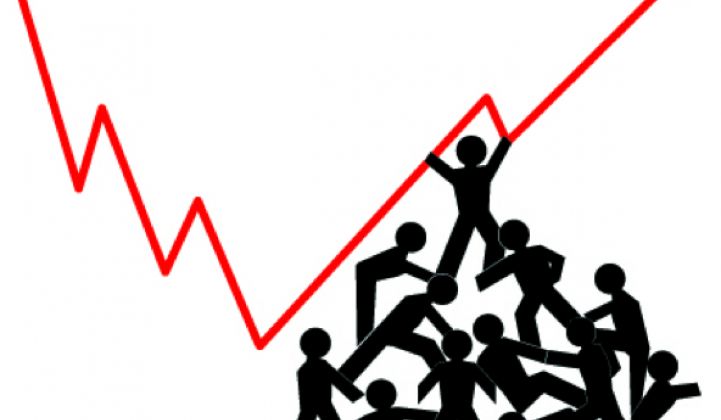Until a few years ago, Conergy was a healthy integrated German solar company building solar modules, racking and inverters, as well as developing PV projects.
But Conergy's ascendance was occurring about the same time that China was orchestrating its move into modules and inverters, making that business less rewarding from both a money-making and an existential standpoint. Conergy fell on difficult times and filed for preliminary insolvency.
In 2013, Astronergy, a part of China's Chint Group, acquired Conergy's 300-megawatt capacity c-Si solar module manufacturing assets. Bosch acquired its inverter business. The company's racking business was sold to a German construction firm. And Miami-based asset management firm Kawa Capital Management acquired the global downstream solar project business of Conergy.
We spoke with Andrew de Pass, the newly installed CEO who moved to Conergy from his prior position as executive chairman of the Conergy Board. (De Pass led Kawa's acquisition of Conergy in 2013.)
“Since Kawa acquired Conergy in 2013, we’ve turned Conergy around from a loss-making position to profitability, with nearly half a billion in revenue,” said de Pass. Calling it "a year of rapid financial turnaround," the solar project developer has declared that it is "operating profitability."
The CEO suggested that Conergy became vertically integrated "at the worst time," but added, "Now we are equipment-agnostic and debt-free." The CEO told GTM that Conergy is "one of the largest global pure-play downstream players" with 350 employees in 14 countries. Recently, Conergy partnered with RWE, a European utility, on German rooftop PV and closed a bank guarantee facility with Deutsche Bank.
"We have reoriented Conergy to focus on solar development, finance, engineering, procurement and construction, and operations and maintenance," said the company in a release. The CEO added, "We're providing growth capital, which Conergy didn't have previously."
He said, "When Conergy was acquired the company was losing tens of millions of euros. Now we're one of the most bankable private developers." The CEO said that the company had $500 million in revenue in 2014 and about 300 megawatts in development, construction or installed.
"Going into 2015," the CEO spoke of a probability-weighted 1 gigawatt of project pipeline," as well as moving into growth markets such as Mexico, Chile, Central America, Turkey and Africa. He suggested that the global nature of "the platform" allowed the company to shift resources as markets waxed and waned. The CEO claimed some strength in Germany, Japan, the Philippines and Thailand, but acknowledged a weak spot in the U.S.
Regarding YieldCos, de Pass suggested that First Solar and SunPower had to join forces just to meet the scale and growth story necessary for that financial tool. He added that he is happy with the current business model of controlling, building, and operating. He suggested that if it makes sense to have a Conergy YieldCo, "We can feed the beast because of our global footprint."
He added, "In this YieldCo-crazed environment, I have no problem selling projects."



